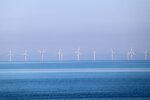Scaling Up to Phase Down: Financing Energy Transition in Developing Countries
Without the means to fund an energy transition and network infrastructure, developing countries often pay more for electricity; they cannot access energy efficiency or renewable energy projects, and are locked into fossil fuel projects with high and volatile costs. In essence, they face a triple penalty for their energy transition that becomes a poverty trap.
World Bank Group estimates that low- and middle-income countries host 89 percent of the approximately $1 trillion in global coal-fired power generation at risk of being stranded. To fund a just power transition will require much higher capital flows than are being mobilized today in order to meet the growth needed in lower carbon electricity production.
“Accelerating the energy transition toward lower carbon sources while providing reliable access to electricity for businesses and people will require verifiable emission reduction financing, close partnership with the private sector, and significantly higher funding, especially concessional resources,” said World Bank Group President David Malpass. “The World Bank Group is supporting reforms to strengthen the energy sector and business environment, investments in new capacity and energy efficiency, grid upgrades to absorb intermittent renewables, and funding and technical support to address the social challenges of the transition.”
“Scaling Up to Phase Down” sets out the challenges facing developing countries seeking to transition their power sectors, in order to identify pathways to address these issues. Three key barriers prevent developing countries from accelerating their energy transition. First, renewable energy projects entail prohibitively high upfront capital costs, and many countries lock themselves into costly and high carbon energy choices with inefficient energy subsidies. Second, developing countries face a high cost of capital that distorts their investment choices away from renewables. And third, weak energy sector fundamentals—especially institutional capacities—hinder the scaling of the transition.
The framework distills the energy transition into a “virtuous cycle” of six steps that are foundational for overcoming barriers to renewable energy. The cycle starts with government leadership, which is translated to a supportive regulatory environment, increasingly capable institutions, and instruments to minimize risks, followed by transparent and competitive project allocation, which can deliver renewable energy that serves urgent needs, including energy security, energy affordability, and jobs.
“Widespread energy transformation in developing countries requires continuous, strategic engagement and far more coordination among governments, investors, and partners than exists presently,” said Guangzhe Chen, World Bank Vice President for Infrastructure. “The World Bank can play a vital role in getting the virtuous cycle started through supporting governments with low-cost and concessional climate finance for transition preparation, utility and network strengthening, and funding affordable clean energy investments.”
The “Scaling Up to Phase Down” approach also offers solutions for the politically and financially complex challenge of phasing out coal-fired power. Deeper planning can help mitigate stranded asset risks. Refinancing of coal plant liabilities can move retirement dates forward. Workers and communities that base their livelihoods on the coal economy must be ensured a just transition. Concessional support is needed to help countries capture more of the global benefits associated with coal phase down as a global public good.
- Source:
- World Bank
- Author:
- Press Office
- Link:
- www.worldbank.org/...
- Keywords:
- World Bank, energy transition, transformation, energy sector, developing country, infrastructure, efficiency, renewable energy, phasing down, coal























